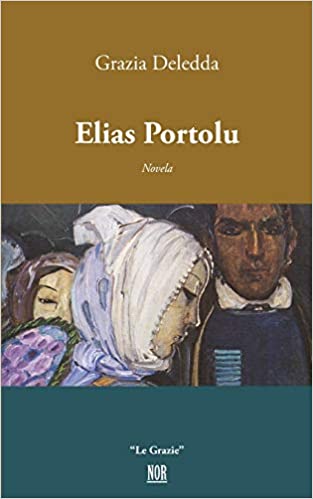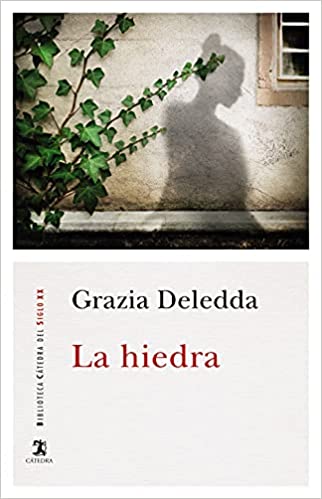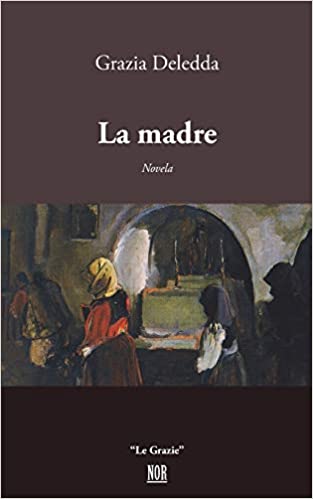The Nobel Prize seems to be the case in the last cases of authors brought to this blog. This time we get a Grazia Deledda engaged in a kind of realism iron, even hurtful, focused on the melancholy emerging from vital disenchantment. The maxim of not returning to the places where one was happy as food for nostalgia that ends up, from a prosaic presentation, by becoming the strange lyricism of existence.
Characters who return despite everything, or who survive destiny, the rehearsal of existence, mortality as a looming shadow from the wear and tear of what has been lived. Grief is the ultimate tragedy for Deledda. Only there is no epic overcoming or significance. Narrating like this has to respond to the torment of lucidity, to that limbo that one reaches in adulthood. That extreme place from which the pathetic creation of the world is contemplated, accompanied by a symphony without order or concert.
But what is paradoxical about this type of literature, and even about the existence that the author insists so crudely on undressing the author, is that the decadent par excellence points to the miracle of life despite everything. Because in every unanswered question we harbor the ultimate mystery that sparks the first and last heartbeat. In the meantime, the most unsuspected passions capable of getting us out of the boredom assumed as the horizon.
Top 3 Recommended Novels by Grazia Deledda
Elijah Portolu
The excessive interest in transferring a perception of life reaches us to a greater extent from the perspective of a protagonist who monopolizes almost everything. The vital future of Elías Portolu is concentrated in a time and a stage towards which, like a blanket, past and future are withdrawn.
Back in Nuoro after four years in detention on the peninsula, Elias Portolu is no longer the same: pale and apathetic, he is unable to reintegrate into the agricultural environment from which he came. The illusion of being able to return to the life of before, spent with his father and his brothers in the family tancas, disappears the same afternoon of his arrival, when he meets a woman forbidden to him: his brother's girlfriend.
The good advice he is seeking is not enough to push him to confess everything or give up on Maria Maddalena, who reciprocates his feelings. If not even the recently celebrated weddings can prevent adultery, Elijah is left with only the choice of the priesthood as a prison in which to atone for his guilt and flee from desire. However, the unforeseen death of his brother and the birth of his illegitimate son once again confront the young man with a heartbreaking dilemma. Deledda focuses on the protagonist's inner torment, leaving us to wonder if her true sin was not repressing a passion or not having the courage to give it free rein.
Ivy
Existence is only substantiated in essential emotions that fight in each soul. Love should always be the winner in this dichotomous struggle between good and evil. Only that aforementioned lucidity, the awareness of the limitations of our time and our body, support the idea that defeat is the most probable for the ideal of good.
This novel deals with one of the most important themes in Grazia Deledda's narrative with special skill: undoing, progressive decline, disappearance. The atmosphere that is presented to us in the Decherchi house connects with the decadent situation of many families of rural Italian nobility, which, unable to adapt to the new times, squander the remains of their diminished heritage in vain and sterile idiosyncrasies. .
In the midst of this melancholic context, we are introduced to Annesa, maid and adopted daughter of the Decherchi family, who will suffer with it the mistakes and faults of Paulu, a young heir, prematurely consumed and unable to find his place in a world in continuous transformation. "The ivy" draws, then, with neat and well-defined lines, the story of a character deeply marked by his inner conflict, and who will pursue love while facing a difficult and oppressive life circumstance.
Mother
Paradigm of the irrevocable, of the decisions that against nature are taken by oneself and by whom the future will convert us. The priesthood and its resignations seem like one more thing from other times, when the human being gave himself up to self-denial without cause, to deficiencies due to moral impositions assumed as a perfect counterweight between God, guilt per se and the denial of all passion that we decentralization of any transcendent plan.
The furtive steps of a young parish priest who leaves his home and the anguish of a mother who follows him in the hope that she was wrong. This is how the drama of a man who has finally admitted the lie of his vocation is unleashed. The past, with all the events that led Paulo to bond with Agnese, reappears insistently in the development of an event focused on the choice of the present: supporting his life or renouncing it in the name of the felling habit.
Pushed by his mother to save himself and his education, Paulo desperately clings to the simple souls of the people of Aar and receives every minimum event that they carry for only three days as a blessing that keeps him from desire. In this masterpiece of world literature, the existential concern of a mother and her child for whom she has sacrificed her entire life emerges with the devastating intensity of a Greek tragedy.



